
Starting June 1st, 2023 Our warehouse fee will be $0.65/cubic foot per month
In effort to lower the warehouse storage fee during inflation, we have went narrow aisle racking.This construction took us four months but the project is finally completed. With narrow aisle racking, we are able to drop storage by 24%.We as partners will go through this inflation together.
11/15/2023
Imagine starting your day with a cup of coffee that's not just any brew, but a masterpiece of flavor, sourced from the world’s finest coffee regions, such as: Vietnam, Jamaica, Colombia, Brazil... This is the promise of Worldcraft Logistics with Coffee Import Service to the U.S., where we bring you more than just coffee. Journeyed across oceans, carrying with it a unique story of culture, tradition, and passion. We will describe all the information you need in detail in this article.
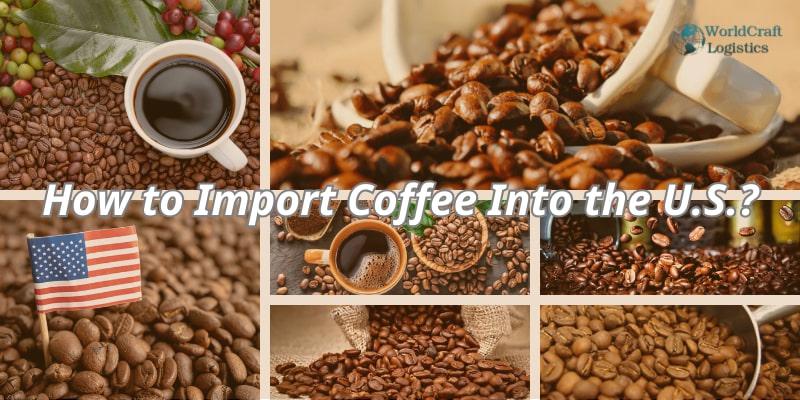
Americans are huge coffee fans. From mass-market goods that keep everyone busy to artisan blend-focused niche eateries. The US imported various coffees and related goods valued at $7.24 billion in 2021. That is almost twice as much as Germany, the second-largest importer globally.
Coffee is subject to FDA regulations because it is a consumer food product. The USDA regulates it because it is an agricultural product. You could have to work with one or both organizations, depending on the kind of coffee product you want to import.
All imports must abide by U.S. Customs and Border Protection (CBP) inspection standards, regardless of whether they are FDA- or USDA-regulated.
Currently, the U.S. Customs and Border Protection (CBP), the Food and Drug Administration (FDA), and the United States Department of Agriculture (USDA) are all involved in the importation of coffee shipments into the United States. These government agencies will facilitate the clearance of your coffee consignment.
Let's start by discussing the CBP's fundamental standards and the business procedures you might employ to guarantee a seamless admission.
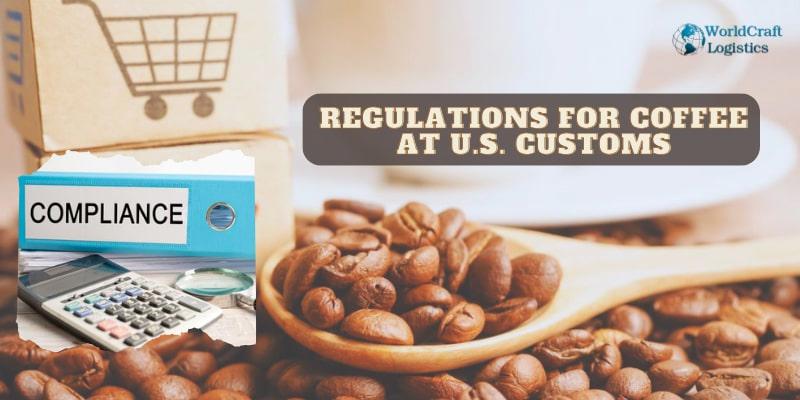
Every time one of the products they regulate enters the United States or any of its territories, the CBP collaborates with Partner Government Agencies (PGAs).
Before goods even leave a foreign port, there are fundamental conditions that need to be met for all products, but especially for food. Follow these guidelines for documents to speed up the customs clearance procedure for coffee importers:
Include a business invoice (a packing list) with your items' tariff classification and purchase price.
Display a Bill of Lading that lists the shipment's contents.
On each coffee product, indicate the country of origin.
Complete the International Coffee Organization's Country of Origin Certificate.
At least 48 hours before to scheduled departures, complete your Importer Security Filings (ISFs).
Purchase a Customs Bond for the amount of the necessary taxes and duties for your shipment.
Within 15 calendar days of the anticipated arrival of your consignment at a port of entry, submit a CBP entry form.
An organized consignment is less likely to be removed for impromptu inspections that can cause a port delay. You run the danger of paying thousands of dollars in penalty costs for things like port storage or additional inspection services if there is something out of the ordinary.
In the worst case, the CBP would have to get in touch with other organizations like the FDA and deny admission to your product. You are left with the choice of paying to export your coffee back or utterly trashing the shipment.
You are still wondering about coffee import and export procedures. Do you need a reference quote before implementation? Please connect with Worldcraft Logistics immediately, we will support you wholeheartedly.
No matter how much food is imported into the United States, customs bonds are required. They are necessary and must be obtained in order to successfully import foods like coffee that are subject to additional federal agency regulations.
Depending on how many coffee imports you make each year, there are two primary types of customs bonds you can employ. The CBP entrance requirements will be satisfied by a continuous or single entry customs bond.
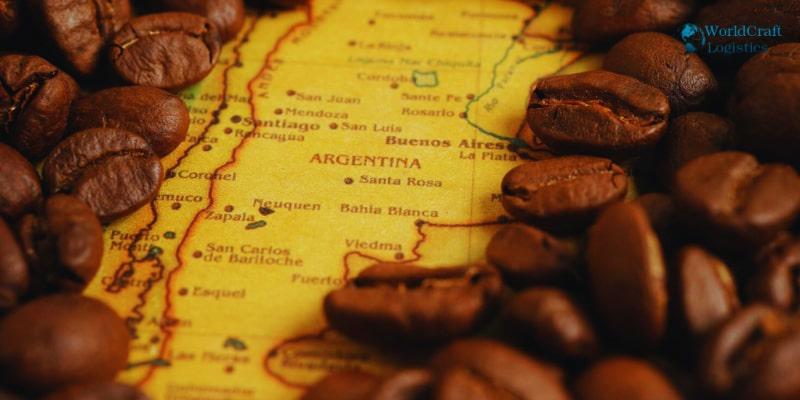
Make sure each bag has a clear indication of the country of origin. Clear instructions on how to mark and categorize coffee items can be found in the CBP paper linked above.
48 hours prior to the projected time of departure from the final foreign port for your consignment, an Importer Security Filing (ISF) must be submitted.
The ICO (International Coffee Organization) requires a certificate of Country of Origin. The supplier or shipper is in charge of this. You can go to http://www.ico.org/ for further details.
Under the Harmonized System (HS) code 0901, whole beans are duty-free; nevertheless, a merchandise processing fee and harbor maintenance fee will be charged.
The merchandise processing fee ranges from $25 to $528.33 and equals 0.3464% of the total cost of the items.
No minimum or maximum fees apply; harbor maintenance fee is.125% of the value of the cargo.
To clear items through CBP, a customs bond will be necessary. You can get a continuous bond with WorldCraft Logistics if you don't already have one. The CBP typically needs 5 days to process a new bond.
You have five days to submit your CBP entry before your package arrives. However, until the FDA and USDA inspections are finished, your items cannot be cleared.
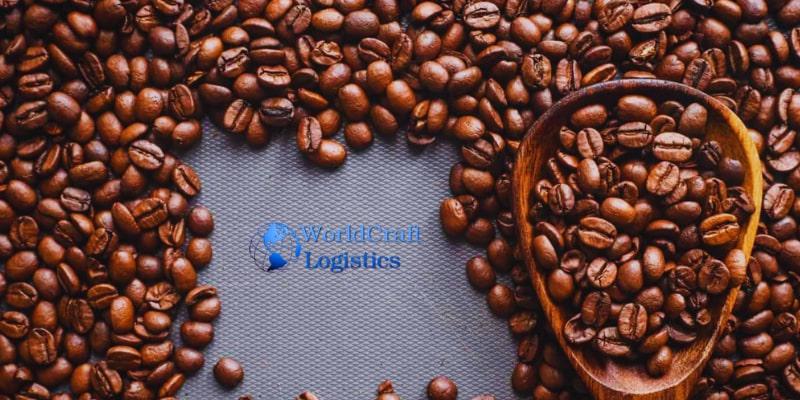
The facility must be registered with the FDA if you are importing entire green coffee beans or roasted beans for processing in the United States. This enables the agency to check food processing and packing facilities on a regular basis to make sure they adhere to safe and hygienic practices.
These checks ensure that importers are abiding by the Food Safety and Modernization (FSMA) Act of 2011 and the Bioterrorism Act of 2002.
Food imports must submit a "Prior Notice of Arrival" report to the FDA along with (if necessary) registering processing facilities.
To find out if any shipments contain unwelcome insects and pests, mold, or other types of general contamination, imported whole green beans or roasted beans are subject to examination.
The FDA examines samples of your imported coffee and searches for contaminated beans. 500-bean mixed sample batches are tested using the ensuing standards. Batch sizes grow by equivalent weights of 500 beans or equivalents.
Employing a sequential sampling strategy
Visually inspect or use a 5x magnifying glass.
Beans that are obviously tainted are designated as rejects.
An x-ray machine with comparable weight and count criteria may also be used for inspection.
Coffee shipments are assigned a "grade" based on these inspections, which establishes whether or not they are acceptable as imports. This procedure—or one similar to it—was probably carried out at a foreign processing facility if you are importing ground coffee. The outcomes might be printed on the product package or made available in a separate document.
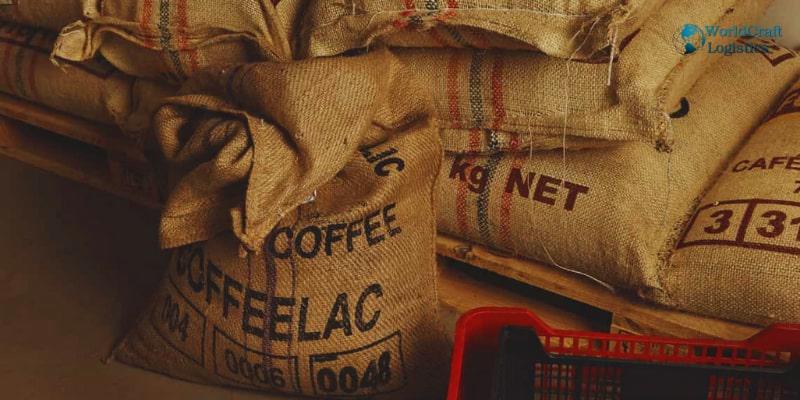
The USDA must receive a completed copy of the application for the permit to import plants or plant products (USDA PPQ587).
Prior to the arrival of your shipment, the FDA requires a Prior Notice Filing, which WorldCraft Logistics can assist with. To help them complete the electronic filing, you must give your broker the information listed below:
Name, business address, phone number, and email of the person sending the prior notice, along with the name and address of the company (if relevant),
If someone else is sending the prior notice on the submitter's behalf, please include their name, the name of their firm if relevant, their business address, phone number, and email.
Type of entry and CBP identifier, if one is available. These consist of:
FDA item number
Typical brand name or market name
Quantity estimated (smallest packet to largest container)
If food is required to have a lot, code number, or other identification, it will be listed.
Manufacturer's name and either 1) the registration number, city, and country of the manufacturer, or 2) both the full address of the manufacturer and the justification for not providing the registration number (reasons listed in the Compliance Policy Guide for Prior Notice of Imported Food) must be provided if the food is not in its natural state.
Identify the grower and the area where the food was grown if it was in its natural state.
Country of Production for FDA
Name of shipper (sender, if food is being mailed) and complete address
Country from which the food is transported; or, if the food is imported via international mail, the projected mailing date and country from which the food is mailed.
Location, date, and time of anticipated arrival; or, if food is imported via international mail, the recipient's name and address in the United States.
Unless the shipment is imported or offered for import for transshipment through the U.S. under a transportation and exportation (T&E) entry, the name and full address of the importer, owner, and consignee; or, if food is imported by international mail, the U.S. recipient's name and address.
Transporter and manner (apart from food imported via international mail)
Information on upcoming shipments (apart from food imported by international mail)
Any nation that has prohibited the article from entering. (2011 IFR)
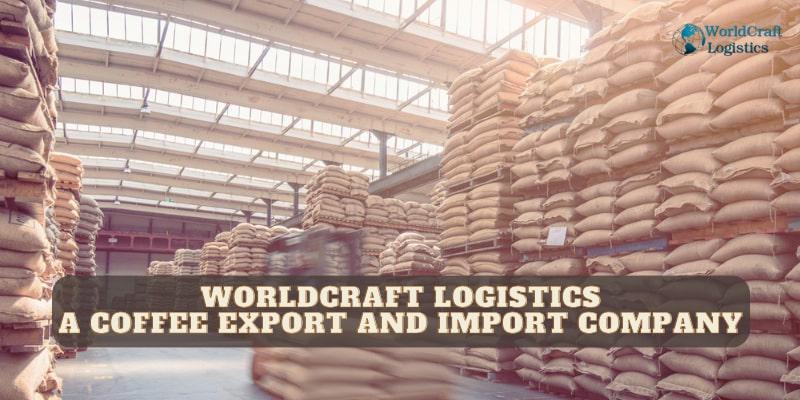
Worldcraft Logistics LLC is a company dealing with the export and import of coffee to the United States, along with offering warehousing services. As an experienced and reputable company in this field in the US, Worldcraft Logistics may participate in many activities, including:
Export and Import Operations: Handling the complexities of exporting coffee from its country of origin and importing it into the U.S., including dealing with customs, tariffs, and trade regulations.
Warehousing Services: Offering storage solutions for coffee before it's distributed to retailers or wholesalers. This could include climate-controlled storage to preserve the quality of the coffee.
Distribution network for agents: Integrated with the goods preservation process, we support shippers to distribute coffee nationwide by delivering directly to cafes, retailers or even grocery stores. Show online orders when orders are available.
Quality Control and Compliance: Ensuring that the coffee meets U.S. food safety and quality standards, as well as any certifications like organic or fair trade.
Sustainability and Ethical Practices: Focusing on sustainable and ethical practices in sourcing and selling coffee, which is increasingly important in the coffee industry.
In essence, Worldcraft Logistics would be a key player in bridging the gap between coffee producers in various countries and the U.S. market, ensuring a steady supply of quality coffee while maintaining efficient and ethical business practices.
Some other services of WCL, please refer to for more detailed information:
- Shipping Furniture from Vietnam to USA
- Car Export Service From USA With Cheapest Cost & Safety
- Milk Tea/Bubble Tea Ingredient Warehouse In US CHEAP & REPUTABLE
Without a particular authorization, people can import coffee for their own consumption. However, there can be certain restrictions and limitations in place.
Coffee imports may involve hazards such as quality variations, transportation hold-ups, customs-related difficulties, price fluctuations in the market, and changes to import laws.
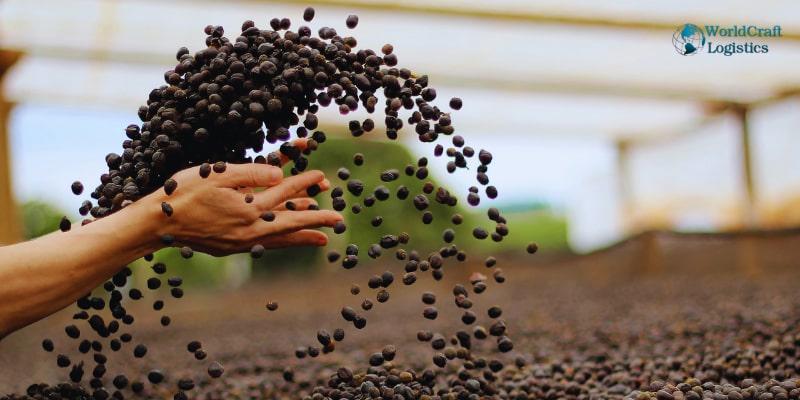
Working with trustworthy suppliers, assuring quality, and putting safe storage and handling practices into place are all necessary for ensuring the quality of imported coffee.
Depending on the country of origin, different laws may apply to the import of coffee. It is essential to research and know each nation's unique standards if you plan to buy coffee from one of them.
To market and sell American-imported coffee You can employ a variety of tactics, including social media marketing alliances with merchants, participation in trade shows, online platforms, and social media platforms.
Conclusion:
Coffee importation into the USA involves thorough preparation, comprehension of import laws, and collaboration with reputable logistical partners and suppliers. You may effectively manage the importation procedure and establish a successful import business if you follow the instructions in this article. Continually modify your plan to address the market for coffee's shifting needs by keeping up with the most recent trends in the sector.
SEO
Digital Marketing/SEO Specialist
Simon Mang is an SEO and Digital Marketing expert at Wordcraft Logistics. With many years of experience in the field of digital marketing, he has shaped and built strategies to effectively promote Wordcraft Logistics' online presence. With a deep understanding of the logistics industry, I have shared more than 500 specialized articles on many different topics.
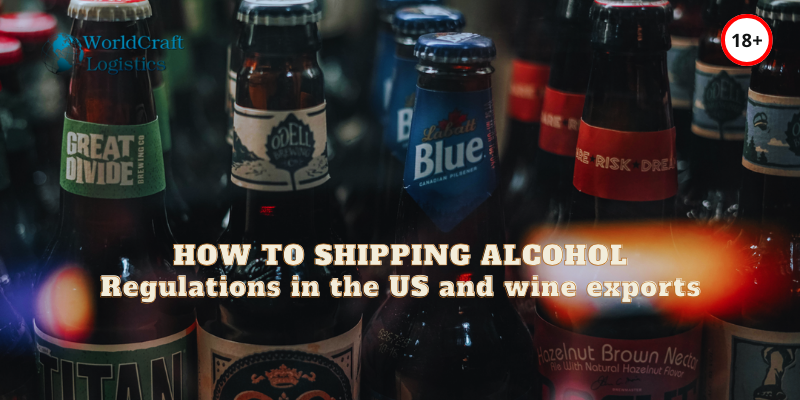
Shipping
12/21/2023
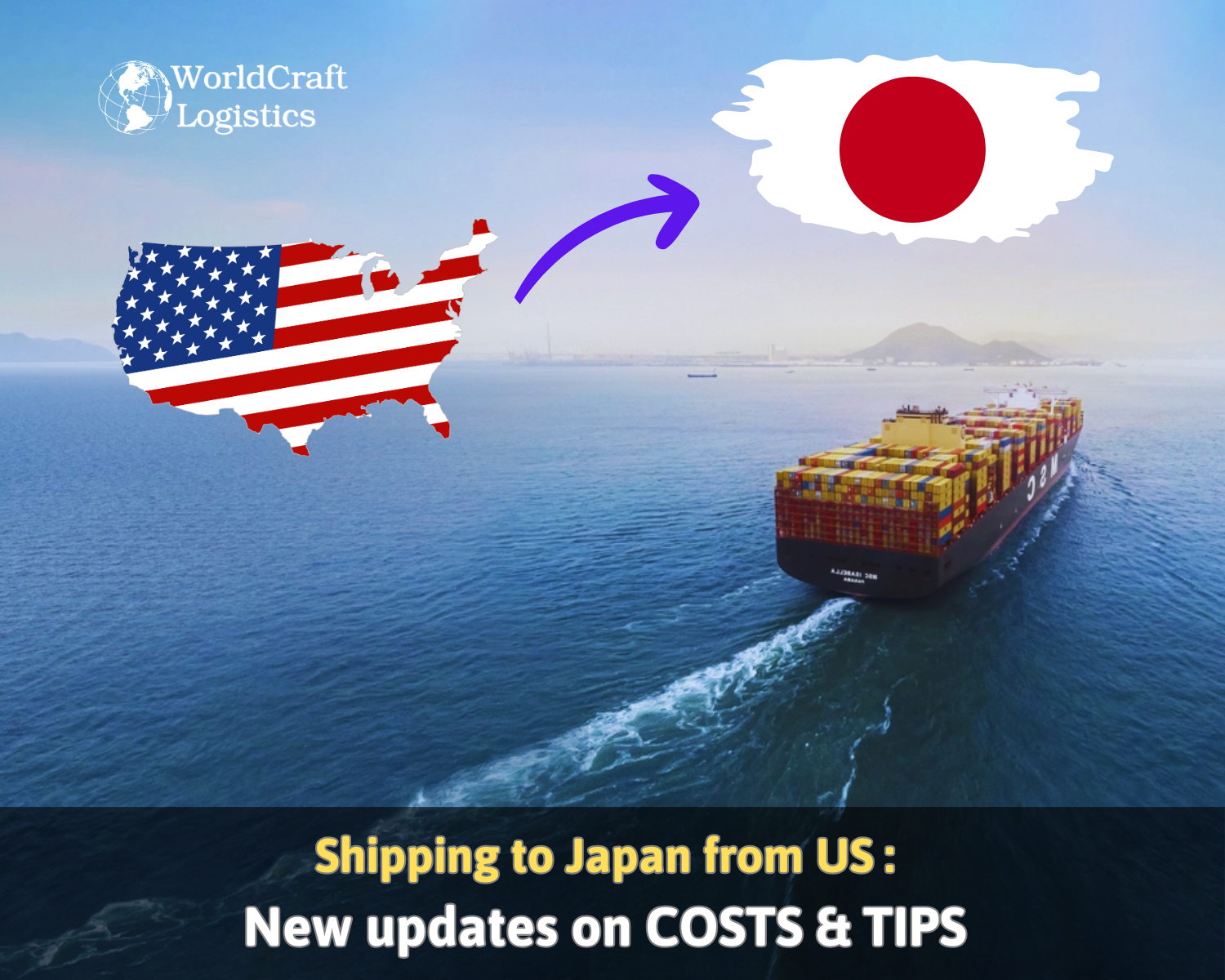
Shipping
02/28/2024
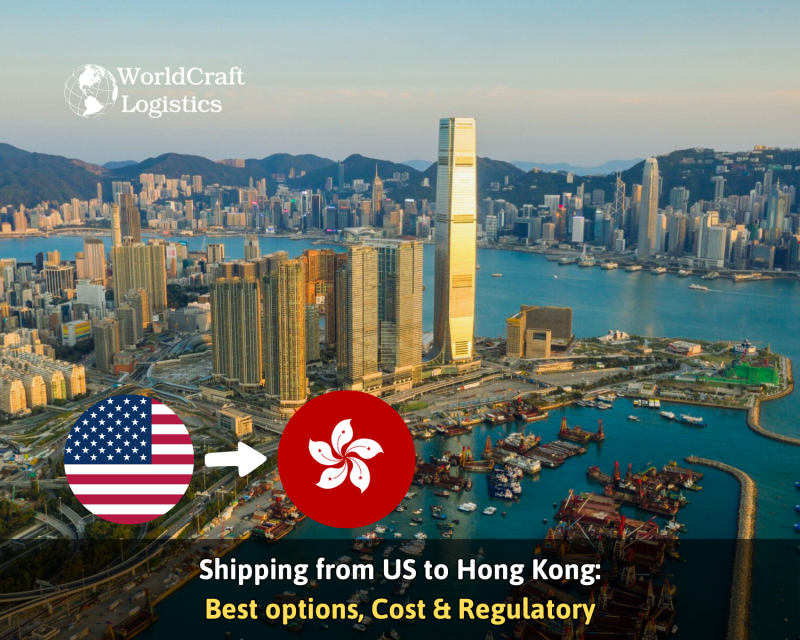
Shipping
04/02/2024
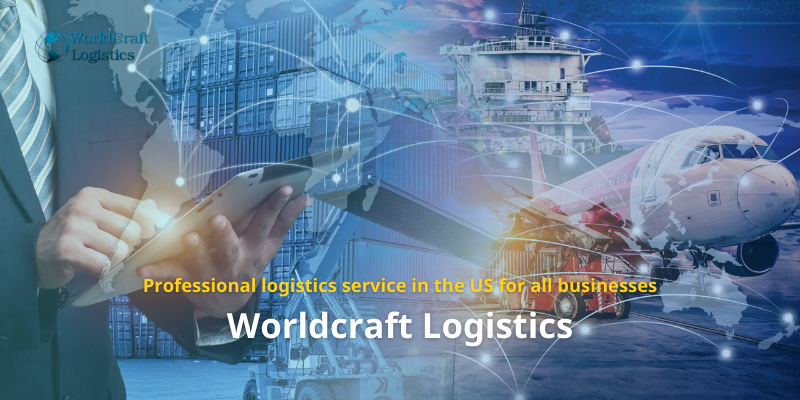
Shipping
12/24/2023
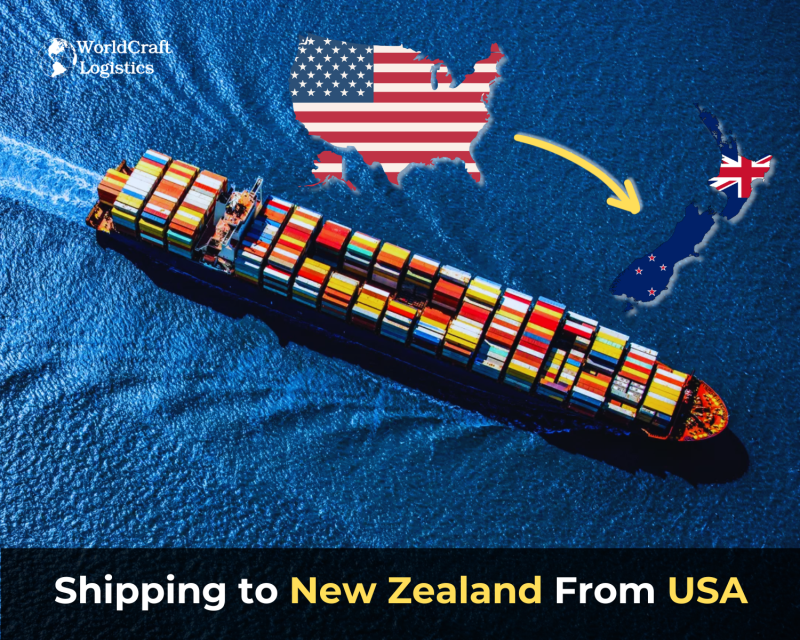
Shipping
11/04/2024